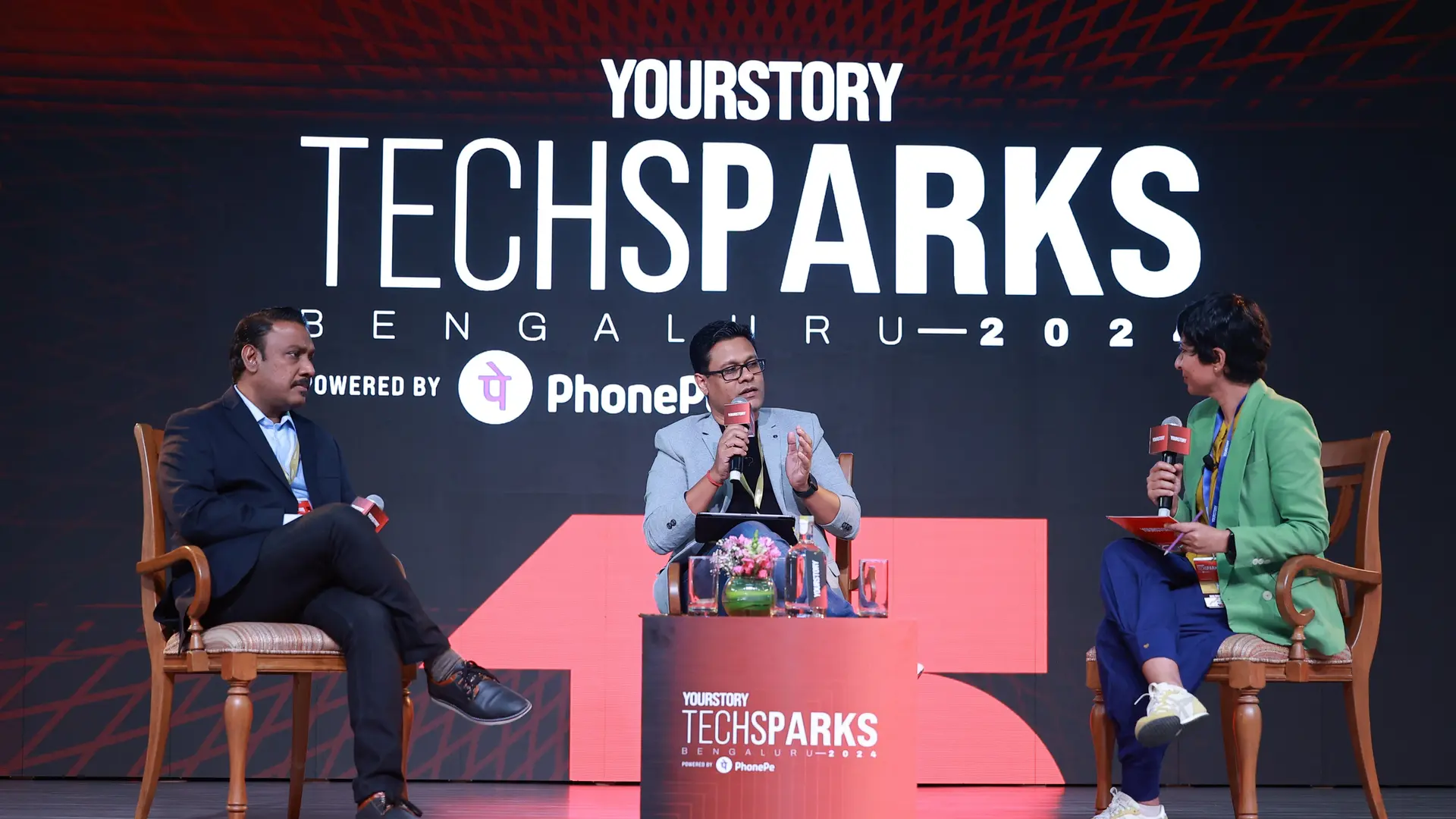What’s next in the evolving narrative of talent development?
At TechSparks 2024, industry leaders examine the shifting paradigms of workforce development and explore how organisations can adapt to the demands of the digital age and ensure their teams are future-ready.
In today’s market, finding the right tech talent can be a daunting task. COVID-19 has fundamentally transformed the way we work and identifying future-ready skills and cultivating a culture of continuous learning have become essential to building a workforce that stays ahead of the curve.
At TechSparks 202, Kaushik Das, Managing Director of JCPenney India, and Rakesh Ravuri, CTO and Engineering Leader at Publicis Sapient, shared their insights on critical challenges like these at a panel discussion on ‘Next-gen Talent: Building the Workforce of Tomorrow’.
The evolving workforce landscape
With the shift towards remote work becoming permanent, companies must rethink their strategies for attracting and retaining talent. Das said, “We are at a unique point where the workforce of yesterday is trying to upskill, while the workforce of tomorrow is determining what comes next." This landscape shift has amplified the need for digital skills and a more proactive approach to workforce management.
Ravuri said the workforce has evolved fundamentally. "It's no longer about people coming to your office; it’s about taking work to the people who can do it," he said. The integration of AI plays a significant role in this shift, allowing organisations to distribute complex tasks across a globally connected workforce.
Redefining talent assessment
The conversation also delved into how organisations assess tech talent in this new era. Das pointed out that while hiring processes have evolved to incorporate remote methods and AI, the emphasis on “skill relevance and resource readiness” remains vital. “The right mindset for tackling challenges—whether familiar or new—sets candidates apart,” he said.
Ravuri added that evaluating talent should focus on creativity and the effective application of tools. “At Publicis Sapient, we prioritise applied engineering—leveraging AI and other resources to deliver value,” he said. This perspective reflects a broader understanding that traditional coding skills are just one element of the talent puzzle.
Creating a culture of continuous learning
Fostering a culture of continuous learning is essential for retaining talent. Das acknowledged the importance of creating an environment that prioritises associate experience. “It's not just about the quality of work; it’s about offering holistic experiences that enable growth,” he said. By engaging employees through collaborative work and leadership development, companies can create an atmosphere conducive to learning.
Ravuri spoke about how organisations have the responsibility to create appealing workplaces for talent. “Word of mouth is crucial—what do people say about working at your company? When talent feels they are growing, they are likely to stay,” he said. This culture not only enhances retention but also nurtures future leaders.
Decentralising talent in emerging cities
As urban areas become increasingly saturated, the conversation shifted to how organisations can decentralise talent and make connected workforces functional in Tier II and Tier III cities.
Das said, “Talent today isn't bound by location. Cities like Mysore, Coimbatore, and Belgaum are seeing a growing talent pool of excellent quality.” By collaborating closely with academic institutions, companies can tap into these emerging talent hubs.
Ravuri noted that the pandemic has accelerated the trend towards decentralisation. “The quality of tools like Zoom and Teams has improved significantly,” he said, acknowledging the need for robust digital and physical infrastructure to facilitate remote work. With improved connectivity, the landscape for distributed workforces is set to expand.
Moving forward
As organisations navigate this new frontier, the insights highlight the importance of adaptability, continuous learning, and proactive talent management in shaping the workforce of tomorrow.
“We need to stay proactive,” said Das, emphasising that the future of work is not just about technology but about the people who wield it. By embracing these principles, businesses can ensure they are prepared for the challenges ahead and cultivate a workforce that thrives in an ever-evolving landscape.







